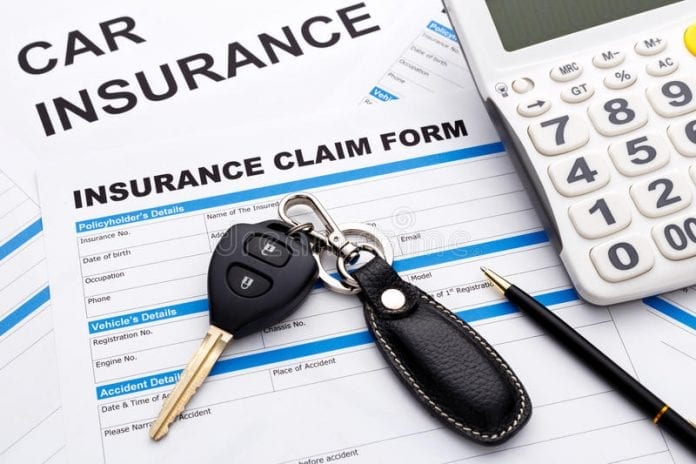When you’re in an accident, you may wonder when yCar Insurance ClaimCar Insurance Claimou can expect to receive compensation for your injuries. It’s a complicated question and insurance companies have a process to go through to determine fault, as well as other involved factors. Insurance companies will also want to investigate how much medical treatment was directly caused by the accident.
Insurance claims aren’t just settled by a single person in many cases. There’s a team of people working together.

A claims adjustor like James Little Agency will need to speak with the body shop repairing your vehicle, as well as medical professionals.
There are also different types of claims. We’re primarily discussing medical and personal injury claims, but it’s helpful to have an idea of what type of claim you’re filing before you begin the process.
- A roadside assistance claim is pretty simple, and you’ll usually be reimbursed in about two weeks once you turn in a receipt for your roadside assistance.
- Glass claims can be handled within a week or so as well.
- If there’s physical damage to your vehicle, for example, you’ll usually be in contact with a claims adjuster within one to three days after you file a claim. Then there may be a few more days before an adjuster can look at the damage, and overall a simple physical damage claim may be dealt within in around one or two weeks.

- If you have a total loss claim, there’s a lot of paperwork, and it might take 30 days or longer to finalize.
- Medical claims are among the longest to settle, which is what we’re mostly talking about below. You fill out the initial paperwork, and then the doctor’s office and medical providers work directly with your insurance claims adjuster. Along the lines of medical claims are personal injury claims, which take the longest to settle.
The following are some of the relevant factors and things to know when it comes to settling a car insurance claim.
The Severity of Your Injuries
According to The Miley Legal Group, one of the factors that plays a significant role in the process of settling a car insurance claim is the severity of your injuries, as well as how long it takes you to recover.

It can take weeks or even months for you to recover fully, and it may not be until that time that a settlement can be agreed upon.
The severity of the accident itself is important too.
If you’re in an accident with a tractor-trailer or another large truck, then it’s probably going to take months or years to settle.
State Law
In most states, there are regulations and guidelines that stipulate how long a claim can take to be settled. If you were to file a personal injury claim after an accident, depending on where you live, your insurance company would have a certain number of days to confirm they received your claim, and then a certain number of days to settle. It might be 45 days, for example.
Some states have regulations, but they’re not as specific. They might just require the claim be settled in a reasonable time.
Settling a Personal Injury Claim

Settling a personal injury claim can also take up to two years, but there’s no one guideline here.
To reduce the amount of time it takes to settle a claim, you should start working with a lawyer right away.
Then, your lawyer can get a jumpstart on the initial paperwork.
The discovery process can be what’s lengthiest in a personal injury claim.
During the discovery process, both sides will find facts and documents, get witness statements, and take depositions. Disputes about the accident will be investigated, and the discovery process might also include accident reconstruction.
There’s something called Maximum Medical Improvement that has to be obtained or MMI.
MMI is the level of recovery you’re able to achieve after an accident, which may never be 100%.
With MMI, a lawyer can use the information to more accurately anticipate future medical costs and things like pain and suffering.
You receive a permanent impairment rating if you’re not expected to recover fully, and that’s from your doctor. It’s a percentage representing how much your body function is reduced.
The reason personal injury claims take so much longer is that there has to be proof the accident caused the injury. There are more evidence and documentation needed.
After you get a prognosis or MMI, then documents are exchanged. You’ll submit your documents and evidence to your insurance carrier, and they’ll respond.
The case may be dismissed or there may be a judgment entered, and those steps can happen before discovery.
The next step is then attempting settlement by mediation, negotiation, or arbitration.
If a settlement isn’t reached, a lawsuit might be filed. After that point, you would go to trial.
If you’re filing a medical claim but not necessarily a personal injury claim, it can be lengthier than something simple like a glass claim. If your health insurance has already provided coverage, then you’ll have to file a separate claim for expense reimbursement. It also reduces how much you can recover.
How Long Do You Have to File a Claim?
How quickly you file a claim is, in many cases going to shorten the timeline.
If you’re making a property damage claim, it will have a shorter window you can file a claim in than a car accident claim.

You are usually required to notify your insurance immediately—within a few days—for most claims. Personal injury claims usually give you up to two years, however.
If you delay, the insurance company then may be more reluctant to pay your claim, and they’re going to want to investigate the delay.
Overall, if you have a simple claim related to a car accident and even a claim for car damage, you can expect a payment pretty quickly.
If you have a claim involving medical injuries or a personal injury claim, it can take years to settle, but there are things you can do to expedite the process.









